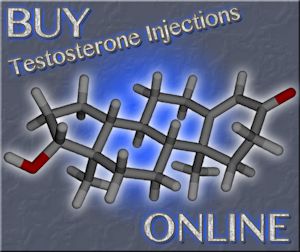Introduction to Urological Health
Urological health is a pivotal aspect of men's overall wellness, yet it often remains under-discussed and under-researched. In the United States, where men's health issues are increasingly coming to the forefront of medical research, understanding and addressing urological concerns is essential. This article delves into the significance of urological health in the context of American men's health research, emphasizing the need for increased awareness and action.
The Scope of Urological Health
Urological health encompasses a wide range of conditions affecting the urinary tract and the male reproductive system. Common issues include benign prostatic hyperplasia (BPH), prostate cancer, kidney stones, and urinary tract infections. These conditions not only impact physical health but can also have profound effects on a man's quality of life, mental health, and overall well-being.
Prevalence and Impact of Urological Conditions
In the United States, urological conditions are prevalent among men of all ages. Prostate cancer, for instance, is the second most common cancer among American men, with approximately one in eight men expected to be diagnosed in their lifetime. BPH, a non-cancerous enlargement of the prostate, affects nearly half of men in their 50s and up to 90% of men in their 70s and 80s. These statistics underscore the urgent need for focused research and effective management strategies.
The Role of Research in Urological Health
Research plays a crucial role in advancing our understanding of urological health and developing innovative treatments. In recent years, American research institutions have made significant strides in areas such as minimally invasive surgical techniques, targeted therapies for prostate cancer, and improved diagnostic tools. However, there remains a gap in comprehensive studies that address the holistic impact of urological conditions on men's lives.
Challenges in Urological Health Research
One of the primary challenges in urological health research is the stigma associated with discussing urological issues. Many men are reluctant to seek medical advice due to embarrassment or a lack of awareness about the seriousness of their symptoms. This reluctance can lead to delayed diagnoses and poorer health outcomes. Additionally, there is a need for more diverse representation in clinical trials to ensure that research findings are applicable to all men, regardless of their racial or socioeconomic background.
The Importance of Early Detection and Prevention
Early detection and prevention are key to managing urological health effectively. Regular screenings, such as prostate-specific antigen (PSA) tests and digital rectal exams, can help detect prostate cancer at an early, more treatable stage. Similarly, lifestyle modifications, such as maintaining a healthy diet and regular exercise, can reduce the risk of developing conditions like kidney stones and BPH. Educating American men about these preventive measures is crucial for improving overall urological health.
Advancing Urological Health Through Policy and Education
To enhance urological health outcomes, it is essential to implement policies that support research and education initiatives. Funding for urological research should be prioritized to encourage the development of new treatments and technologies. Moreover, public health campaigns can play a vital role in raising awareness about the importance of urological health and encouraging men to seek timely medical care.
Conclusion: A Call to Action
Urological health is a critical component of men's overall health and well-being. In the United States, where men's health research is gaining momentum, it is imperative to focus on urological conditions to improve health outcomes and quality of life. By increasing research efforts, promoting early detection and prevention, and addressing the stigma surrounding urological issues, we can make significant strides in enhancing the urological health of American men. It is a collective responsibility that requires the commitment of healthcare providers, researchers, policymakers, and the men themselves to prioritize and act on this vital aspect of health.
Contact Us Today For A Free Consultation

- Urological Health Guide: Proactive Care and Common Conditions for American Men [Last Updated On: March 9th, 2025] [Originally Added On: March 9th, 2025]
- Urological Health Guide for American Men: Symptoms, Conditions, and Preventive Care [Last Updated On: March 18th, 2025] [Originally Added On: March 18th, 2025]
- Smoking's Detrimental Effects on Urological Health in American Men: A Comprehensive Overview [Last Updated On: March 19th, 2025] [Originally Added On: March 19th, 2025]
- Genetics and Urological Health in American Men: Prostate Cancer, BPH, Kidney Stones, Infertility [Last Updated On: March 19th, 2025] [Originally Added On: March 19th, 2025]
- Urological Health and Fertility: Conditions, Diagnosis, and Treatment for American Males [Last Updated On: March 19th, 2025] [Originally Added On: March 19th, 2025]
- Cardiovascular and Urological Health: A Vital Connection for American Men's Wellness [Last Updated On: March 19th, 2025] [Originally Added On: March 19th, 2025]
- Urological Infections in American Males: Causes, Prevention, and When to Seek Help [Last Updated On: March 20th, 2025] [Originally Added On: March 20th, 2025]
- Trends and Innovations in Urological Care for American Males [Last Updated On: March 20th, 2025] [Originally Added On: March 20th, 2025]
- Managing Urological Pain in Men: Causes, Diagnosis, and Treatment Options [Last Updated On: March 21st, 2025] [Originally Added On: March 21st, 2025]
- Veterans' Urological Care: Specialized Services and Holistic Health Support [Last Updated On: March 21st, 2025] [Originally Added On: March 21st, 2025]
- Urological Health Strategies for American Men in the Workplace [Last Updated On: March 21st, 2025] [Originally Added On: March 21st, 2025]
- Exercise Regimen for American Men to Boost Urological Health [Last Updated On: March 22nd, 2025] [Originally Added On: March 22nd, 2025]
- Hydration's Role in Enhancing Urological Health for American Males [Last Updated On: March 22nd, 2025] [Originally Added On: March 22nd, 2025]
- Urological Health in Sports: Risks, Prevention, and Performance for American Male Athletes [Last Updated On: March 22nd, 2025] [Originally Added On: March 22nd, 2025]
- Urological Rehabilitation: Enhancing Men's Health and Quality of Life in America [Last Updated On: March 22nd, 2025] [Originally Added On: March 22nd, 2025]
- Urological Health's Psychological Impact on American Males: Breaking the Silence [Last Updated On: March 22nd, 2025] [Originally Added On: March 22nd, 2025]
- Stress Impact on Urological Health in American Males: Management Strategies [Last Updated On: March 22nd, 2025] [Originally Added On: March 22nd, 2025]
- Debunking Urological Myths: Essential Facts for American Men's Health [Last Updated On: March 22nd, 2025] [Originally Added On: March 22nd, 2025]
- Technological Advances Revolutionizing Urological Diagnosis for American Males [Last Updated On: March 23rd, 2025] [Originally Added On: March 23rd, 2025]
- Urological Health and Mental Well-being: A Holistic Approach for American Men [Last Updated On: March 23rd, 2025] [Originally Added On: March 23rd, 2025]
- Navigating Urological Insurance: A Comprehensive Guide for American Men's Health [Last Updated On: March 23rd, 2025] [Originally Added On: March 23rd, 2025]
- Urological Health in American Men: Screenings, Conditions, and Holistic Care [Last Updated On: March 24th, 2025] [Originally Added On: March 24th, 2025]
- Urological Health Education: Vital for American Males' Quality of Life [Last Updated On: March 24th, 2025] [Originally Added On: March 24th, 2025]
- Urological Health Guide for American Males: Best Practices and Preventive Care [Last Updated On: March 24th, 2025] [Originally Added On: March 24th, 2025]
- Urological Health: Enhancing American Men's Quality of Life Through Proactive Care [Last Updated On: March 24th, 2025] [Originally Added On: March 24th, 2025]
- Urological Health and Cancer: Prevention, Detection, and Treatment for American Males [Last Updated On: March 25th, 2025] [Originally Added On: March 25th, 2025]
- Urological Health: Key to Longevity for American Men [Last Updated On: March 25th, 2025] [Originally Added On: March 25th, 2025]
- Managing Urological Health in American Men with Chronic Illnesses: A Comprehensive Guide [Last Updated On: March 25th, 2025] [Originally Added On: March 25th, 2025]
- Supplements for Urological Health: Benefits for American Men [Last Updated On: March 25th, 2025] [Originally Added On: March 25th, 2025]
- Alcohol's Impact on Urological Health: Risks and Management Strategies for Men [Last Updated On: March 25th, 2025] [Originally Added On: March 25th, 2025]
- Urological Health: Vital Screening and Care for Young American Males [Last Updated On: March 25th, 2025] [Originally Added On: March 25th, 2025]
- Managing Urological Health in Men Over 50: Strategies and Insights [Last Updated On: March 25th, 2025] [Originally Added On: March 25th, 2025]
- Urological Health and Skin Care: A Holistic Approach for American Males [Last Updated On: March 25th, 2025] [Originally Added On: March 25th, 2025]
- Urological Health and Mental Well-being: A Holistic Approach for Men [Last Updated On: March 25th, 2025] [Originally Added On: March 25th, 2025]
- Obesity's Impact on Urological Health in American Men: Risks and Management Strategies [Last Updated On: March 26th, 2025] [Originally Added On: March 26th, 2025]
- Environmental Impacts on Urological Health in American Males: Risks and Prevention [Last Updated On: March 26th, 2025] [Originally Added On: March 26th, 2025]
- Urological Health and Immunity: Strategies for American Males [Last Updated On: March 26th, 2025] [Originally Added On: March 26th, 2025]
- Urological Surgery Recovery Guide for U.S. Males: Tips and Strategies [Last Updated On: March 26th, 2025] [Originally Added On: March 26th, 2025]
- Urological Health Guide for American Males: Procedures, Conditions, and Recovery [Last Updated On: March 26th, 2025] [Originally Added On: March 26th, 2025]
- Exercise and Urological Health: Safe Practices for American Males [Last Updated On: March 26th, 2025] [Originally Added On: March 26th, 2025]
- Urological Health and Medications: Effects, Management, and Screening for American Men [Last Updated On: March 26th, 2025] [Originally Added On: March 26th, 2025]
- Urological Health and Sleep: A Vital Connection for American Men [Last Updated On: March 26th, 2025] [Originally Added On: March 26th, 2025]
- Urological Health: Vital for American Men's Wellness and Quality of Life [Last Updated On: March 26th, 2025] [Originally Added On: March 26th, 2025]
- Dietary Guide for Enhancing Urological Health in American Men [Last Updated On: March 26th, 2025] [Originally Added On: March 26th, 2025]
- Urological Health's Impact on Sexual Function in American Men: Education and Awareness [Last Updated On: March 27th, 2025] [Originally Added On: March 27th, 2025]
- Urological Health and Fertility: A Guide for American Males Planning Families [Last Updated On: March 27th, 2025] [Originally Added On: March 27th, 2025]
- Managing Urological Health: Essential Travel Tips for American Men [Last Updated On: March 27th, 2025] [Originally Added On: March 27th, 2025]
- Urological and Bone Health: Essential Connections for American Males [Last Updated On: March 28th, 2025] [Originally Added On: March 28th, 2025]
- Urological Health's Impact on American Men's Social and Professional Lives [Last Updated On: March 28th, 2025] [Originally Added On: March 28th, 2025]
- Integrating Urological Health into U.S. Men's Health Campaigns: A Vital Step Forward [Last Updated On: March 28th, 2025] [Originally Added On: March 28th, 2025]
- Urological Health and Vision: A Critical Link for American Men's Wellness [Last Updated On: March 29th, 2025] [Originally Added On: March 29th, 2025]
- Urological Health and Hearing Loss: Connections and Risks in American Males [Last Updated On: March 31st, 2025] [Originally Added On: March 31st, 2025]
- Urological Health: A Vital Focus in U.S. Men's Health Advocacy [Last Updated On: April 2nd, 2025] [Originally Added On: April 2nd, 2025]
- Urological Health Linked to Dental Care: Insights for American Men's Well-being [Last Updated On: April 2nd, 2025] [Originally Added On: April 2nd, 2025]
- Urological and Respiratory Health Nexus: Critical Insights for American Males [Last Updated On: April 4th, 2025] [Originally Added On: April 4th, 2025]
- Urological Health: A Critical Focus for U.S. Men's Health Policy Enhancement [Last Updated On: April 7th, 2025] [Originally Added On: April 7th, 2025]
- Urological and Digestive Health: A Vital Connection for American Males [Last Updated On: April 7th, 2025] [Originally Added On: April 7th, 2025]
- Urological Health Education: Vital for American Men's Well-being and Quality of Life [Last Updated On: April 8th, 2025] [Originally Added On: April 8th, 2025]
- Urological Health's Impact on Men's Career Performance and Well-being [Last Updated On: April 8th, 2025] [Originally Added On: April 8th, 2025]
- Urological and Musculoskeletal Health Link: Insights for American Men's Wellness [Last Updated On: April 8th, 2025] [Originally Added On: April 8th, 2025]
- Urological Health's Impact on American Men and Family Life: A Holistic Approach [Last Updated On: April 9th, 2025] [Originally Added On: April 9th, 2025]
- Urological and Endocrine Health: A Vital Connection for Men's Wellness [Last Updated On: April 10th, 2025] [Originally Added On: April 10th, 2025]
- Urological Health Integration Enhances Men's Health Programs in America [Last Updated On: April 10th, 2025] [Originally Added On: April 10th, 2025]
- Neurological Impacts on Urological Health in American Males: Insights and Management [Last Updated On: April 10th, 2025] [Originally Added On: April 10th, 2025]
- Urological and Cardiovascular Health Links: Guidance for American Men [Last Updated On: April 12th, 2025] [Originally Added On: April 12th, 2025]
- Urological Health: Vital for Men's Well-being and Longevity [Last Updated On: April 13th, 2025] [Originally Added On: April 13th, 2025]
- Urological Health's Crucial Role in Men's Reproductive Well-being [Last Updated On: April 14th, 2025] [Originally Added On: April 14th, 2025]
- Urological Health and Mental Well-being: An Integrated Approach for American Males [Last Updated On: April 15th, 2025] [Originally Added On: April 15th, 2025]
- Urological Health: Vital for Men's Wellness and Longevity in America [Last Updated On: April 15th, 2025] [Originally Added On: April 15th, 2025]
- Urological Health's Impact on American Men's Social Well-being and Life Quality [Last Updated On: April 16th, 2025] [Originally Added On: April 16th, 2025]
- Integrating Urological Health Education into Men's Wellness Programs in America [Last Updated On: April 16th, 2025] [Originally Added On: April 16th, 2025]
- Urological Health and Emotional Well-being: A Holistic Approach for American Men [Last Updated On: April 17th, 2025] [Originally Added On: April 17th, 2025]
- Urological Health's Impact on American Men's Community Engagement: Strategies and Insights [Last Updated On: April 17th, 2025] [Originally Added On: April 17th, 2025]
- Urological Health: Vital for American Males' Overall Wellness and Prevention [Last Updated On: April 18th, 2025] [Originally Added On: April 18th, 2025]
- Urological Health: A Vital Component of Men's Health Initiatives in the U.S. [Last Updated On: April 19th, 2025] [Originally Added On: April 19th, 2025]
- Urological Health and Immunity: A Vital Connection for American Males [Last Updated On: April 19th, 2025] [Originally Added On: April 19th, 2025]
- Urological Health: Essential for American Males' Well-being and Quality of Life [Last Updated On: April 20th, 2025] [Originally Added On: April 20th, 2025]
- Prostate Cancer in American Men: Insights, Interventions, and Urological Management [Last Updated On: April 22nd, 2025] [Originally Added On: April 22nd, 2025]
- Urological Health Guide: Conditions, Screening, Lifestyle, and Innovations for American Men [Last Updated On: April 22nd, 2025] [Originally Added On: April 22nd, 2025]
- Urological Health Impact on American Males' Quality of Life: Conditions and Management [Last Updated On: April 22nd, 2025] [Originally Added On: April 22nd, 2025]
Word Count: 613





















